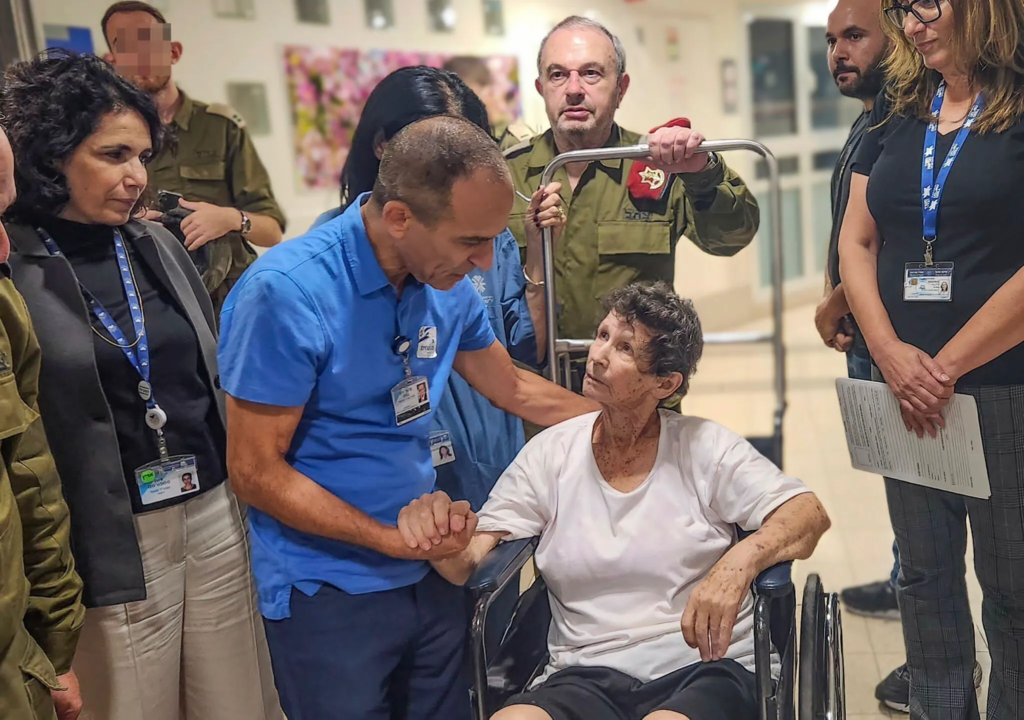She was led through a tunnel system, she said, and later recognized friends from her kibbutz and elsewhere as they gathered in a large room that appeared to have been “prepared in advance.”
Lifshitz’ daughter, Sharone Lifschitz, who spells her surname differently from her parents, accompanied her mother for the interview. Both said they were afraid that if hostages aren’t freed before the winter holidays end, global interest in their plight — and pressure on Hamas to release them — might wane.
“Hostage families feel strongly that this week is the most crucial week,” Sharone Lifschitz said. “If it doesn’t happen this week, then it is Christmas, and then the New Year, and most of them will be dead.”
Fears for the safety of the remaining captives have mounted after the extended cease-fire — a deal that saw the release of more than 100 hostages held in Gaza and 240 Palestinian prisoners held in Israeli jails — ended on Dec. 1.
On Sunday night, Israel released the names of 20 hostages it believes are dead, heightening concerns for the more than 130 it says are still held by Hamas.
‘I don’t know if he will be able to hold on’
Lifshitz said her 82-year-old husband, Oded, was injured in Hamas’ Oct. 7 ambush and is suffering from high blood pressure and lung disease. She fears he and other hostages with health conditions could die soon if they are not released.
“Oded suffered highs and lows in blood pressure, and he has a pre-existing lung illness, and I don’t know if he will be able to hold on over there,” she said. “The conditions over there, with no fresh air and after such a long period of time — I don’t know if there is enough oxygen over there for people with lung disease.”
In a few instances, Lifshitz referred to her husband, a journalist and fellow peace activist, in the past tense, then caught herself.
“He was a brilliant journalist, very much appreciated,” she said. “He is still — I don’t want to say ‘was’ in the past tense.”
